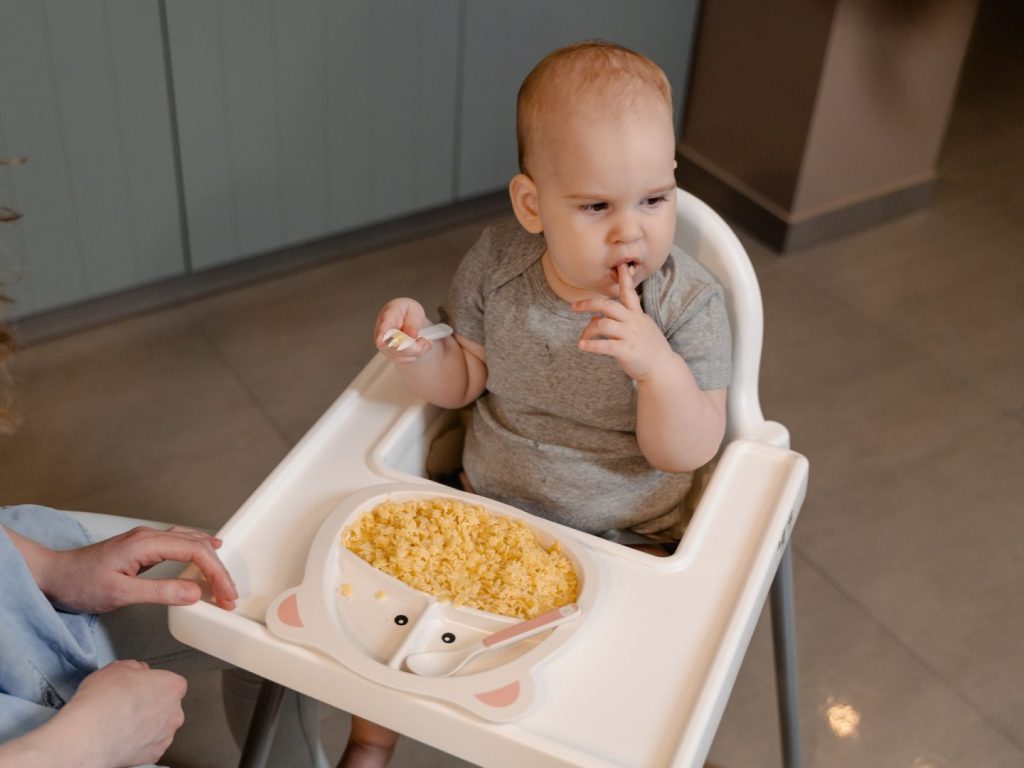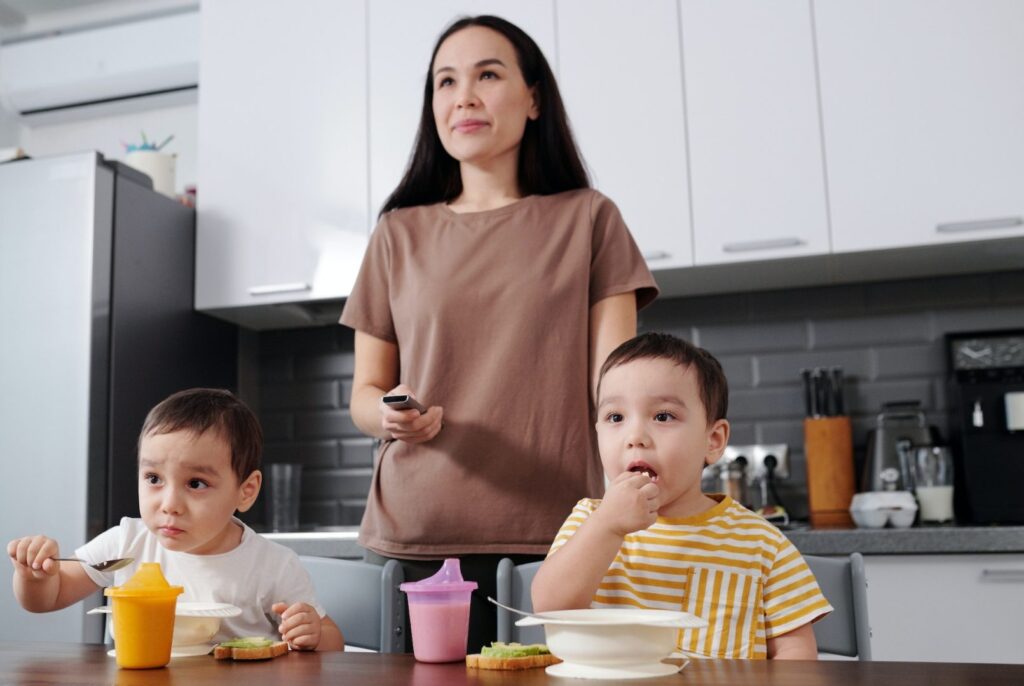As a parent, you may encounter a lot of issues with your toddler’s eating. Your toddler hates his chair, throwing food, or does not eat anything at all.
Then we surprisingly realized that some kids’ videos or TV can keep children sitting in their chairs long enough to eat. The screen provides enough distraction that your toddler is willing to eat food without getting stressed out over it.
But we sometimes stop and ask ourselves: Is it Ok for toddlers to watch TV while eating? Let’s find out!
Pros of Toddlers Watching TV While Eating

Mealtimes for toddlers are always tough! Children never follow your instructions smoothly. And a powerful assistant for parents is a TV program with all sorts of interesting things on it.
Luckily, there are things that TV can be helpful such as the following:
Can distract picky eaters
The toddler would be entertained and would not throw food or cry to get out of his highchair because the screen provided enough distraction.
Can make mealtimes less stressful
Parents are very busy with their work and feel less stressed if their children are obedient in eating food. Children will easily open their mouths to eat when there is an attractive TV program.
Can provide entertainment and a chance to bond over a show
Eating while watching TV, children will increase their entertainment through fun programs. You can ask them about the content they are watching and encourage them to eat a lot more.
Cons of Toddlers Watching TV While Eating

There are many reasons toddlers should not watch TV while eating, such as:
Can Lead to Overeating and Obesity
Toddlers do not really pay attention to what food is served on their plates and how much they should eat.
Eating now is just passive chewing and swallowing while watching their favorite cartoons, so children do not feel the taste of food, which can lead to overeating.
As a result, they end up eating more and are in danger of being obese.
Can Negatively Impact Digestion
Due to mindless eating while watching TV, toddlers do not feel the taste of food, easily lose their appetite, and do not secrete enough enzymes that are good for digestion.
In the long run, this will adversely affect the digestive system, possibly causing stomach pain.
Can negatively affect language development:
Children no longer prioritize communication activities with parents or relatives while eating.
Children who only communicate with the TV with their eyes (only children with the TV), will have difficulty expressing emotions and attitudes, not learn how to speak, how to express emotions, and no feedback.
As a result, children may lack the social skills that will help shape their future personalities.
Research on Toddlers Watching TV While Eating
A recent study confirmed that watching TV while eating can affect a child’s cognitive development.
The study over several years evaluated the language skills of more than 1,500 children at the ages of 2, 3, and 5 and a half and concluded that young children exposed to television during family meals have lower language skills on average. This affects their interactions with their parents and anyone in general.
Moreover, kids who watch TV during family meals suffered from poorer language levels than those who don’t.
Tips for Parents

Feeding children while watching TV does more harm than good. Here are some tips to help your child eat without TV:
- For a younger child, it is best to make your child independent and train him to eat all by himself gradually. You can buy a highchair to put your child in that and always put the chair in the dining room. From the start, no playing time during eating time, and train your child as early as possible.
- For an age of up to 2-3 years, your child will be able to understand your talking, he will be able to understand your emotion. If you are patient enough, you will be able to make him understand that eating is an important function in our life. It should be done along with other family members.
- Other children tend to play with toys while eating, tell them that playing can be done after eating time. Being patient and having repeated action from time to time will help.
- Focusing on the quality of food you give your children to have nutritious meals.
- To encourage your children to eat, you can tell them that they are allowed to watch TV if they obey you in building good habits. However, make sure the screen time they earn does not exceed the recommended screen time per day.
- Be a good example for your children, and that means not using any electronic devices during your meals.
Conclusion
Feeding toddlers is always a challenging and time-consuming task. Understanding the negative impact of watching TV on children’s meals helps parents have more motivation to build healthy eating habits.
Your child deserves your companion in their development, so keep patient!
FAQs
How do I get my toddler to stop watching TV while eating?
Parents should gradually reduce their child’s exposure to the screen. You can start feeding them without the phone, or you may take the phone away before the meal is over so that they finish the meal without it.
You can encourage your child to eat in exchange for watching TV later.
How many hours of screen time is healthy for a toddler?
Screen time should be reduced to a minimum level for a toddler.
- Under 1 year old: Zero screen time
- 2-5 years old: No more than one hour per day co-viewing with a parent or sibling
Does screen time cause ADHD in toddlers?
There are lots of studies on the interplay between ADHD and screen time. A common conclusion is that screen time does not cause ADHD, and ADHD is not the only reason children are spending more time on screens.
But some studies found preschool children who had ADHD watched more than the 1 hour per day recommended for 2- to 4-year-olds by the World Health Organization (WHO).
Therefore, parents should control the screen time exposed to their toddlers.
Should babies eat and watch TV?
Babies should not eat and watch TV at the same time. Using TV during mealtimes prevents children from listening to their bodies and realizing whether they are still hungry or full.
It also affects children’s eating behavior and language development.
ALSO READ: How Can Parents Support their Children in Critical Thinking at Home







